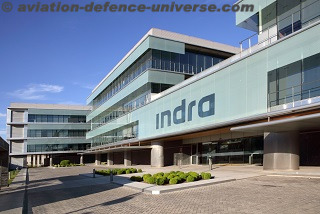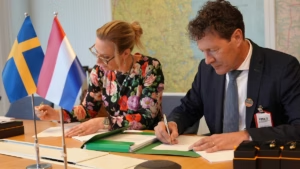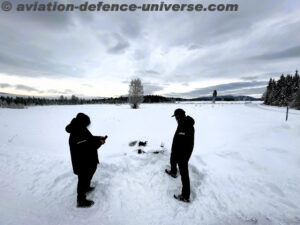- It is one of the biggest and most ambitious dual civil-military aircraft surveillance system projects ever launched on the continent.
- Its deployment is crucial to ensuring the maximum operability and efficiency of the Polish Air Force
- Indra wins the project ahead of the sector’s leading companies and strengthens its solid position as a global supplier of radars and its capacity to respond to the needs of the most advanced armies
Madrid. 04 September 2024. Indra has closed with the Polish Ministry of Defence one of the most important ground radar contracts tendered in Europe this year: the company will implement up to 15 transportable systems for military and dual air traffic control at air bases throughout the country, thus contributing to reinforce the operability of the Polish Air Force, a country that currently plays a key role in defending the continent.
The agreement signed with the Polish Armaments Agency includes the delivery of the first eight systems until 2028, with an optional extension of seven additional systems until 2031.
Indra competed with the sector’s most significant international companies to be awarded the contract, once again proving its position as one of the main global suppliers of military, civil and dual-use radars and its capacity to meet the needs of the most modern armies.
The first radar that Indra will implement at the bases meets the demanding requirements of the Polish Air Force and is distinguished by its top-level performance in terms of determining the 3D position and trajectory of aircraft, even under the most difficult operating conditions, as well as its ability to integrate the associated identification friend or foe (IFF) radar information, which allows it to discriminate its own and allied aircraft from the rest of the traffic in flight.
Indra’s solid-state system ─completely based on electronic components, which provide greater transmission reception efficiency─ incorporates a completely digital process of the signal, being able to operate in environments with interferences that are caused by orography, adverse meteorology, countermeasures, or reflections caused by wind turbines. Equipped with a weather channel, it allows aircraft to be guided out of storms if necessary. The redundant design provides very high operational availability and, together with comprehensive remote monitoring, allows 24/7 unattended operation.
The contract comes at a time when countries all over Europe, and especially in the north of the continent, are strengthening their defence with the most sophisticated technologies available.
In this regard, air bases are one of the most significant assets to guarantee the air defence of any country and to have an efficient and agile air force. The systems of Indra provide exceptional situational awareness, which facilitates the approach of aircraft as well as landings and take-offs, guaranteeing fluidity in the management of air operations in coverage and the capacity for immediate response in the event of any threat.
The systems that Indra will supply, including towers and antennas, offer the additional advantage that they can be transported in shelters for deployment wherever they are needed, providing maximum operational flexibility. They also offer full interoperability capability with other allied air forces, which is vital when coordinating complex multinational operations.
In addition, data from the new radars can be safely used by civilian air traffic control systems, which will improve air safety throughout the country. In this respect, the systems comply with the strictest applicable NATO, air navigation and information security standards.
Indra designs cutting-edge radars that cover airspace and space surveillance, tactical missile defence and low-level drone detection. As well as Spain, European countries such as the United Kingdom, France, Germany, Portugal, Denmark and Lithuania operate with its radars, and Indra is also the supplier of mobile radars for NATO’s deployable component.
In Poland, Indra has a long history of collaborating with the country’s authorities and leading companies in the modernization of critical infrastructure. With the air navigation service provider PANSA, it has completely modernized Poland’s air traffic management. It also worked with the Gdansk Port Authority on the implementation of the maritime traffic management system and with the Spanish Navy on the implementation of satellite communications systems in the Kormoran frigates.




































































































































